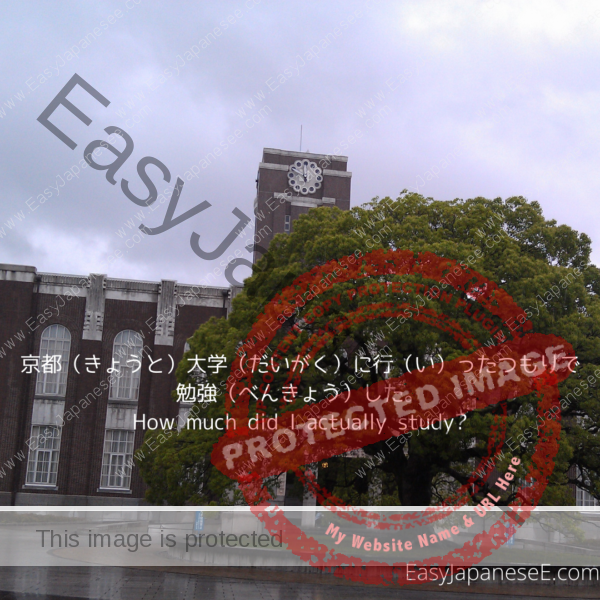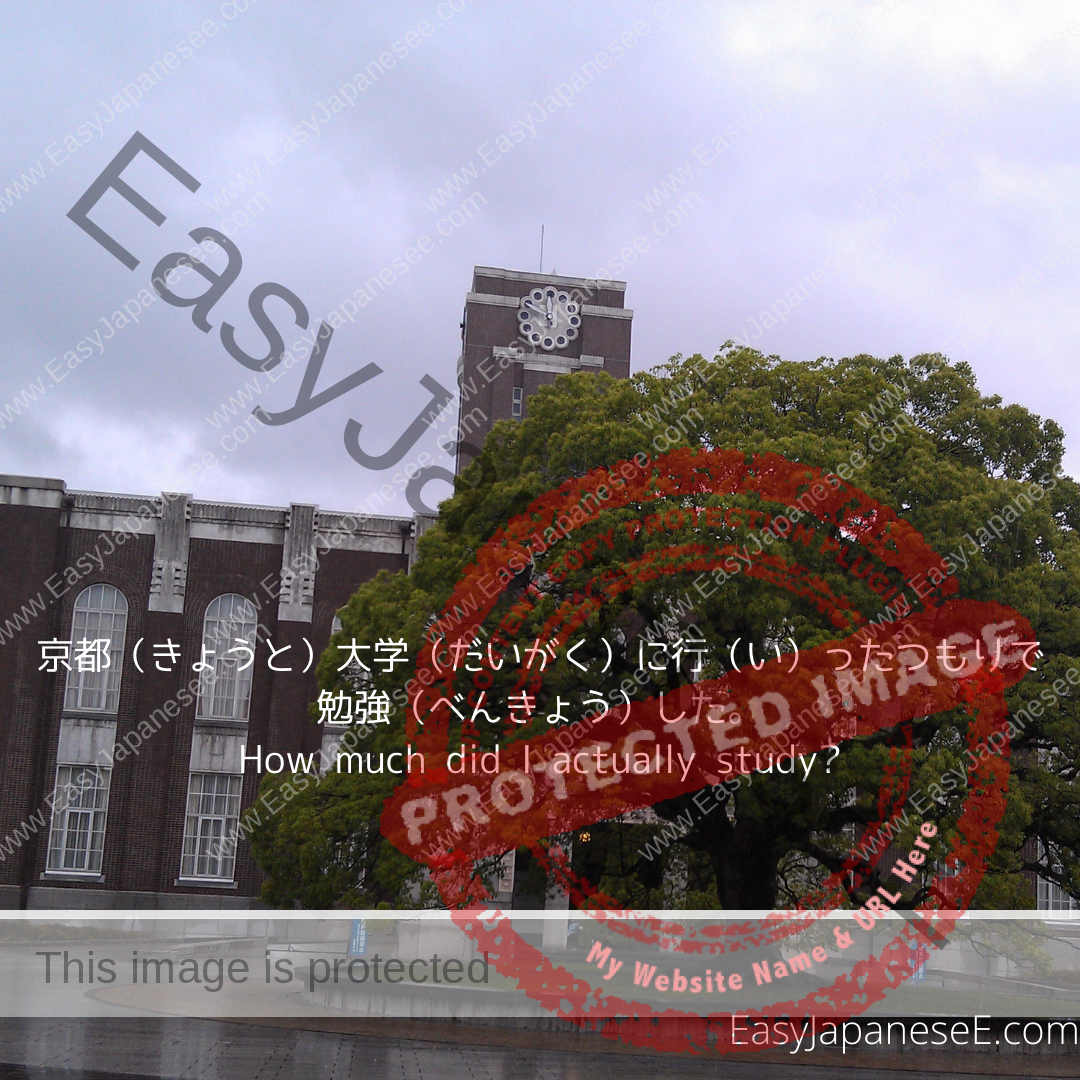
Today’s Question
京都大学に行ったつもりで勉強した。
How much did I actually study?
Today’s Grammar Point: ~たつもり
つもり means an “intention”, so つもり is often used with a dictionary form verb to express the speaker’s intended action in the future, but if つもり is used with a past tense verb, ~たつもり can express an assumption or conviction which may not necessarily true or real.
Connections
- [たform verb] + つもり
たform verb is the past plain form of a verb
Examples
京都大学に行ったつもりで勉強した。
I studied as if I went to Kyoto University.親になったつもりで小さな妹の面倒を見た。
I took on the role of a parent and cared for my little sister.死んだつもりで一生懸命働いた。
We worked as hard as we could.
(We worked hard as if we are no longer alive.)駅までタクシーに乗ったつもりで貯金した。
I put away the money I would have spent on a taxi to the station.あなたになったつもりで考えてみました。
I tried looking at it from your point of view.電源を切ったつもりだった。
I thought that I had turned off the power.すっかり合格したつもりになっていた。
I was sure that I had passed.かぎをここに置いたつもりなのに見つからない。
I thought I put my keys here, but now I can’t find them.「きれいにそうじしたつもりです」「つもりじゃだめですよ」
“I thought I cleaned it all up.”—“Thinking isn’t good enough.”やり方はわかったつもりになっていたんですが。
I thought I understood how to do it but ….昨日宿題を終わらせたつもりだったんですが、最後の問題が残っていました。
I thought I had finished my homework yesterday but the last question was not answered.
Answer to Today’s Question: I want to say I did a lot but I’m not sure.
For the actual meaning of the sentence, see above.
Related Post
If you liked this article, please share it with your friends using the social media buttons below. Also, your clicks on ads on this page help covering the cost of running this website. Your support will be much appreciated.

